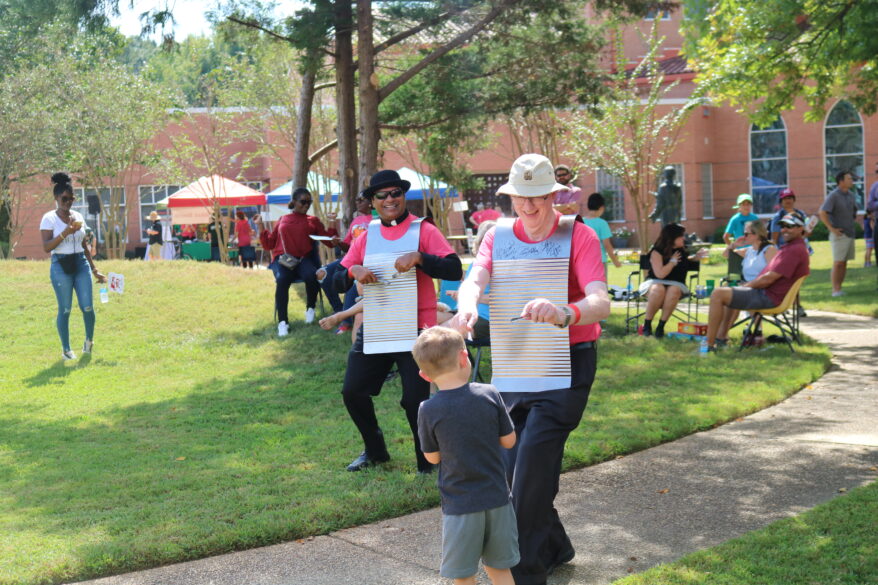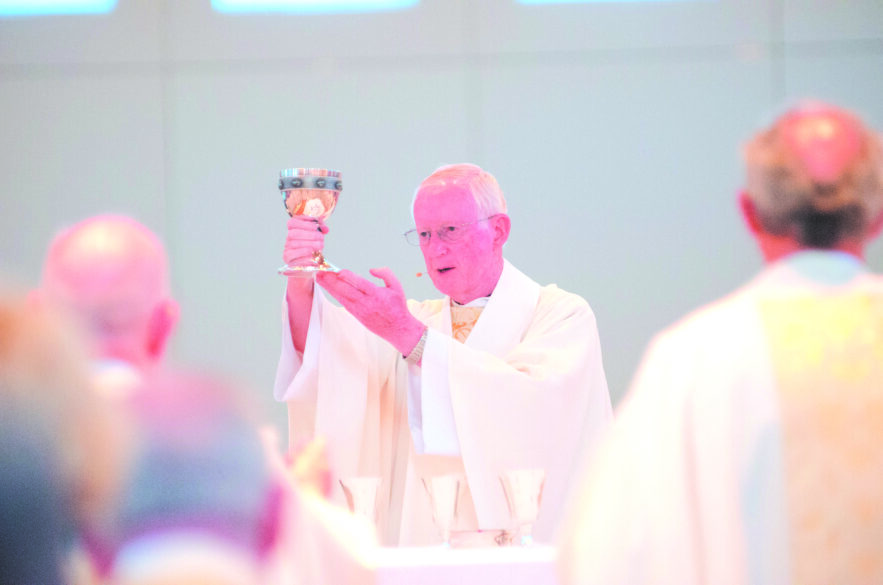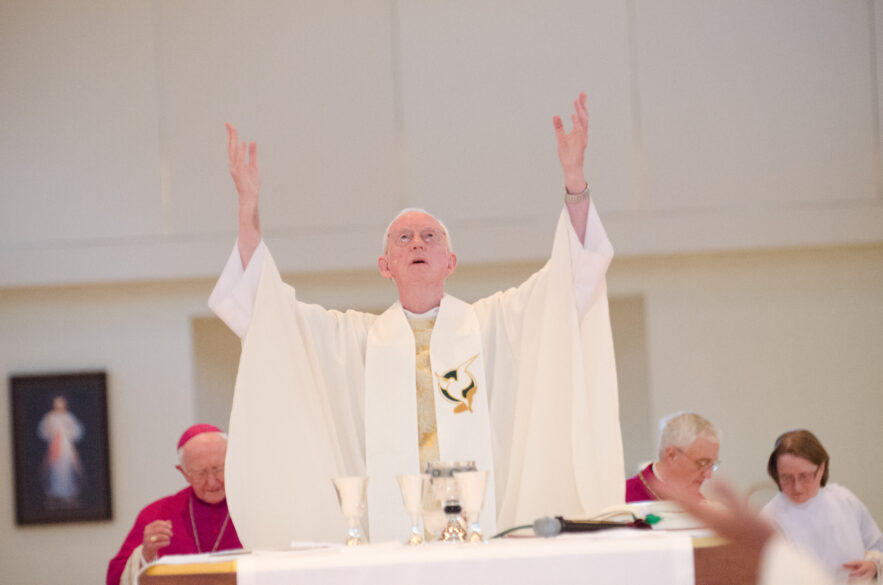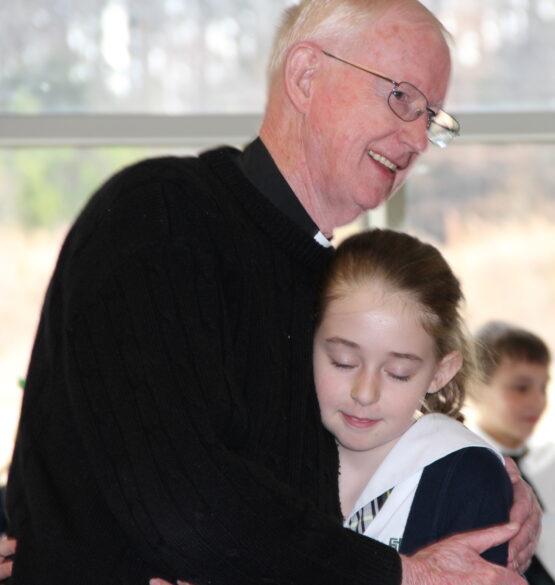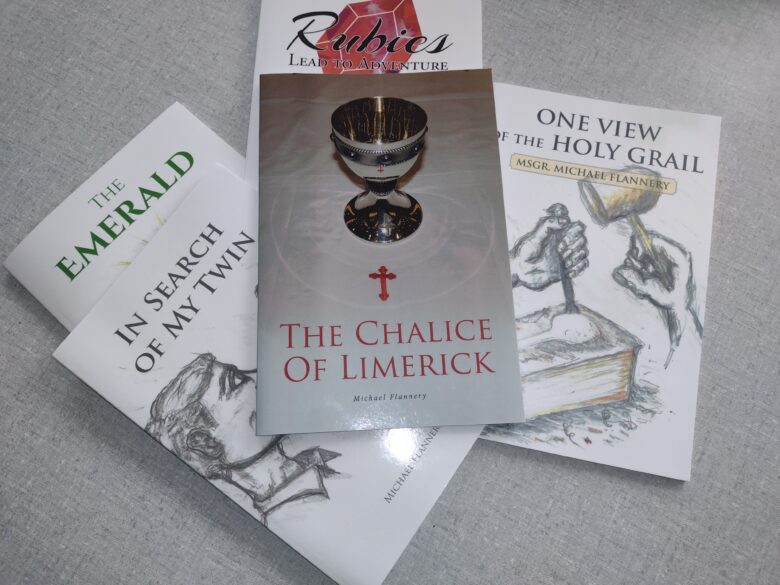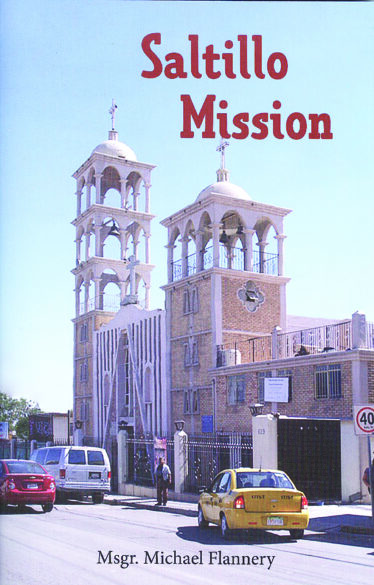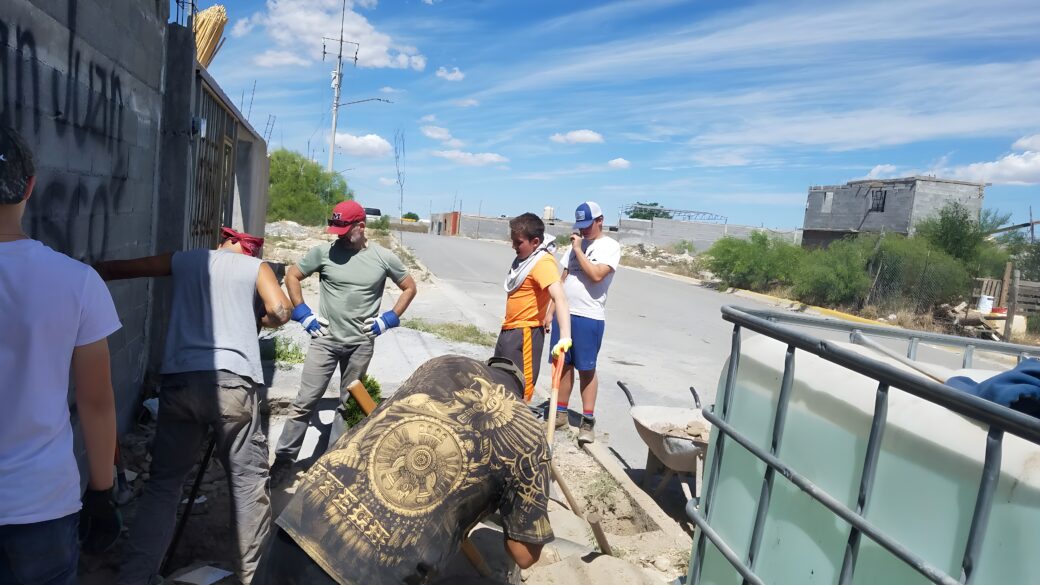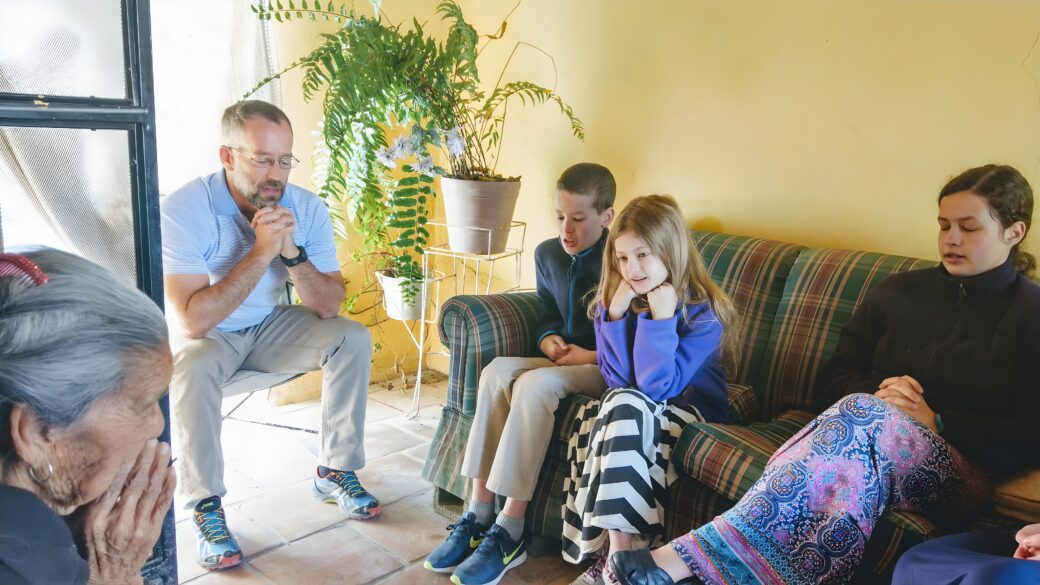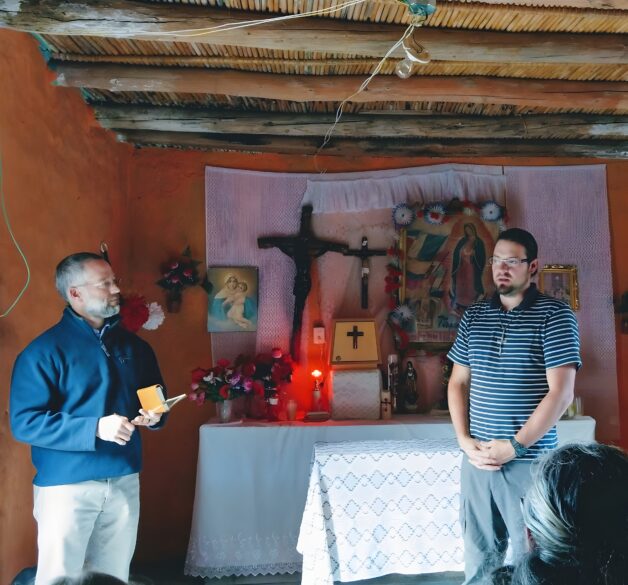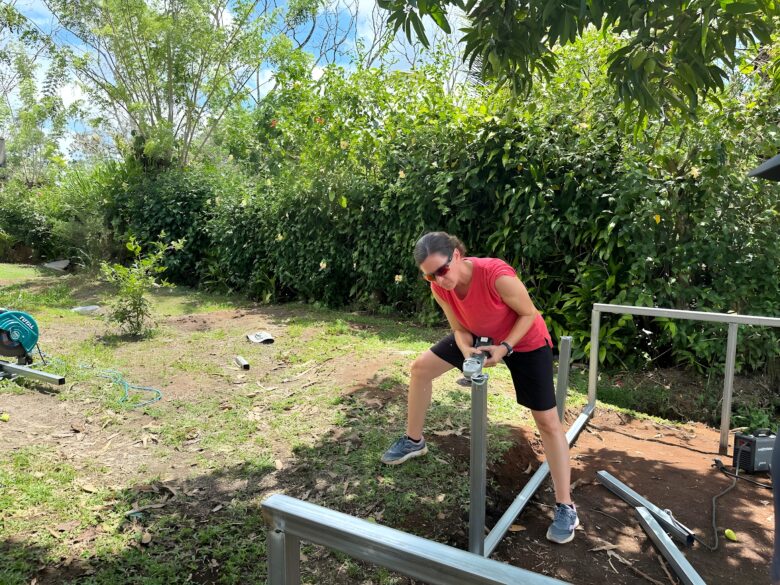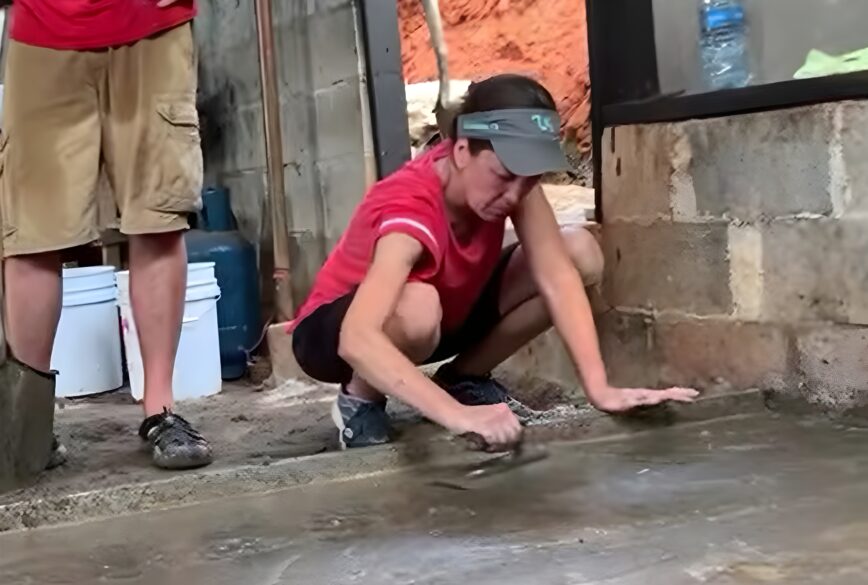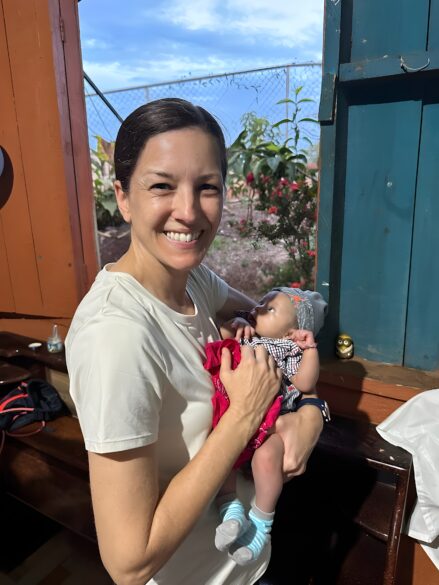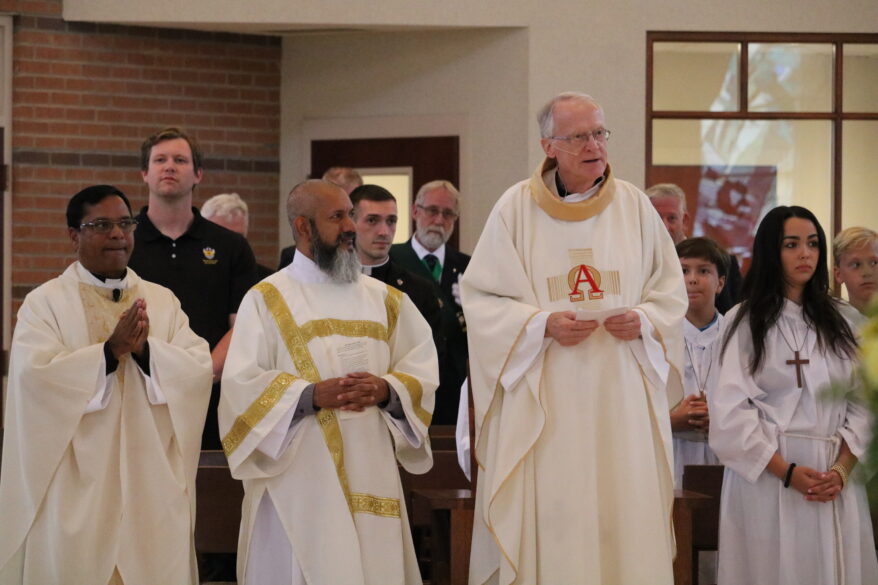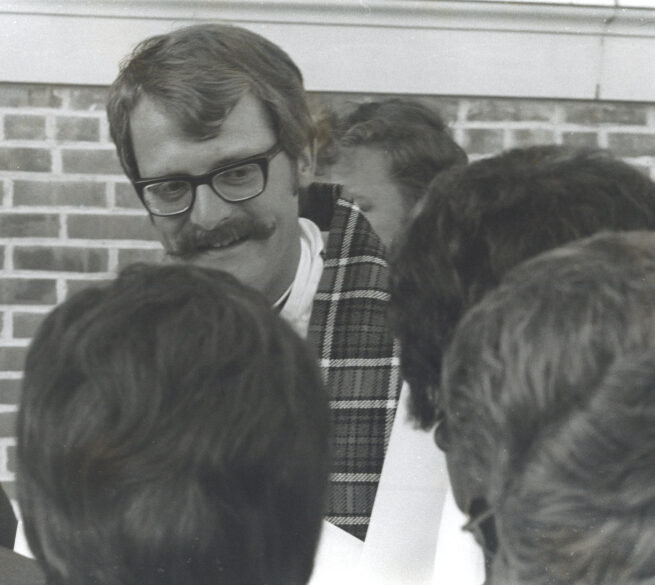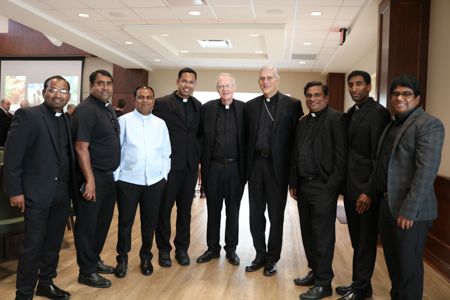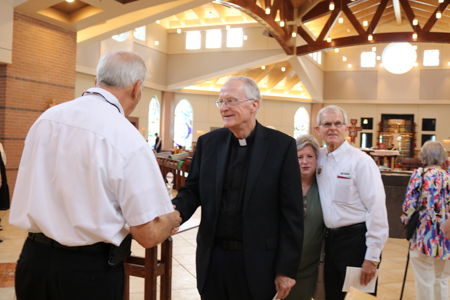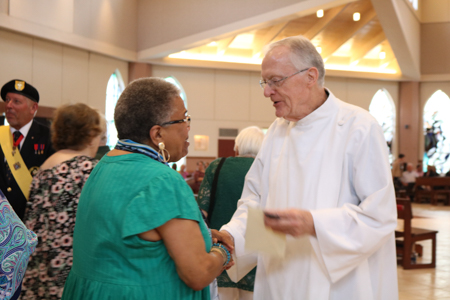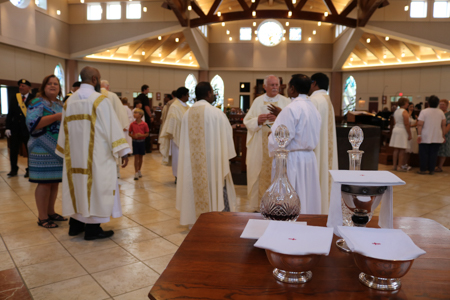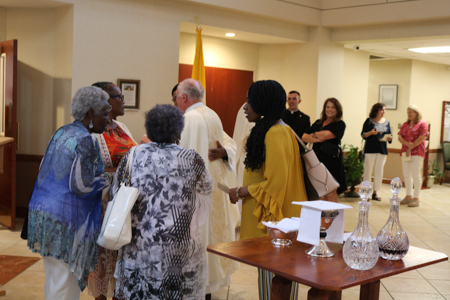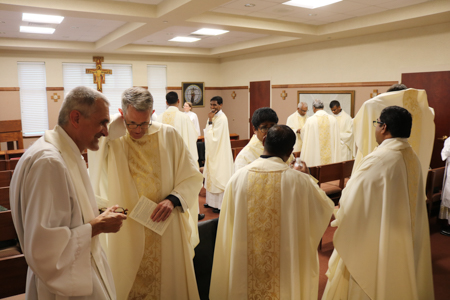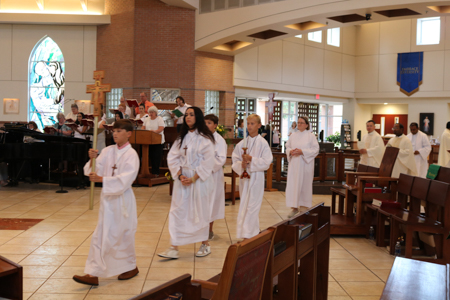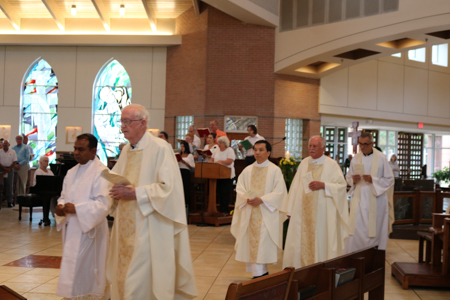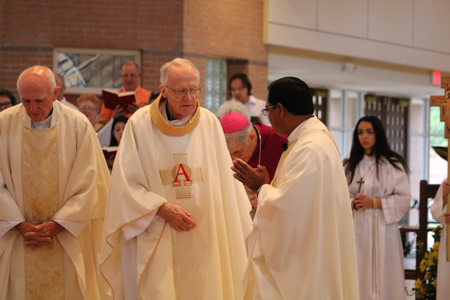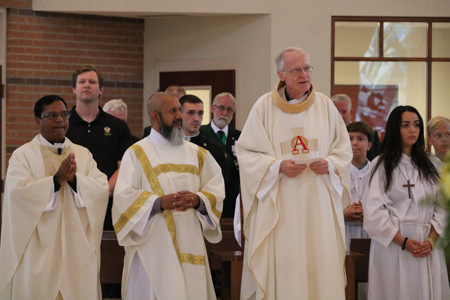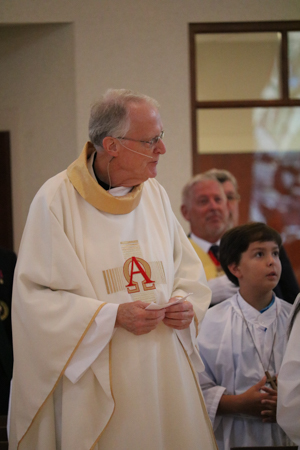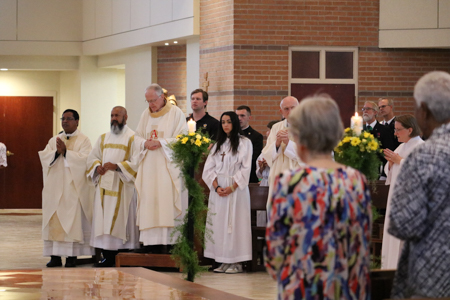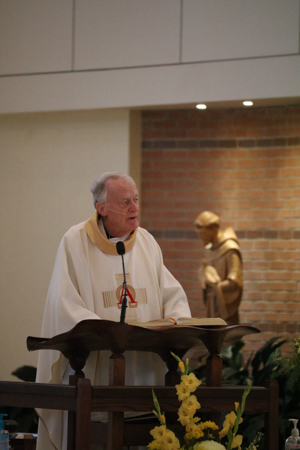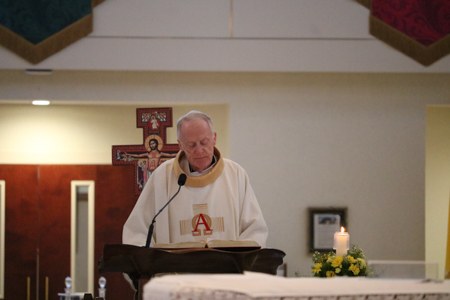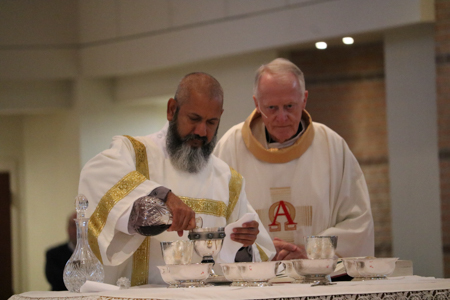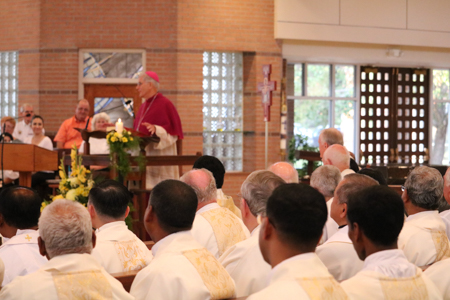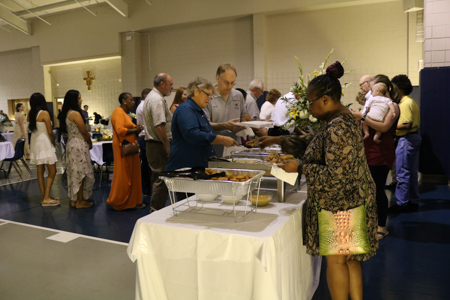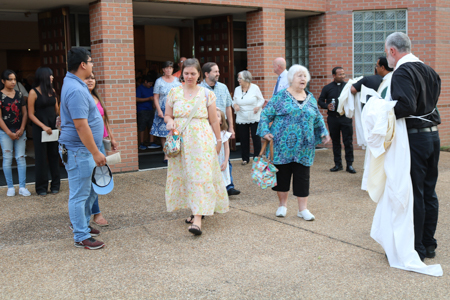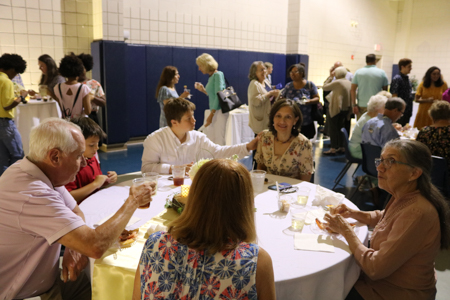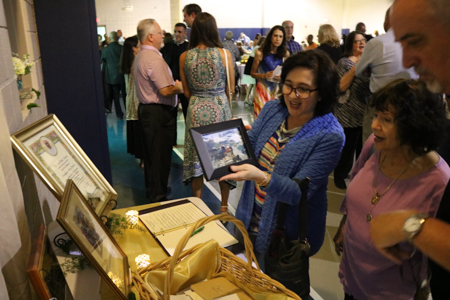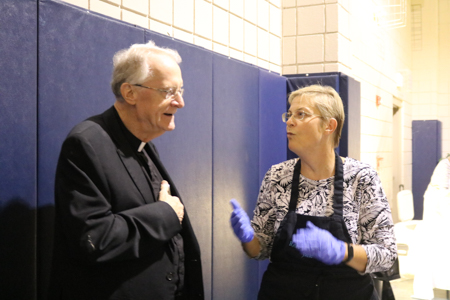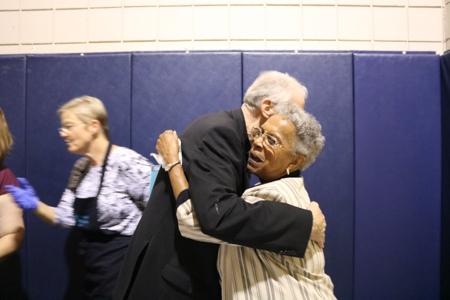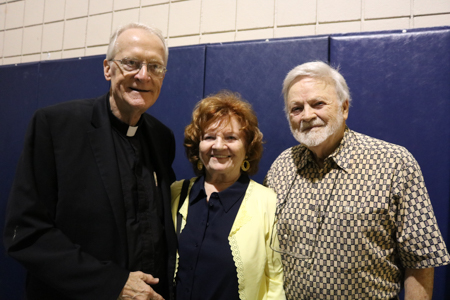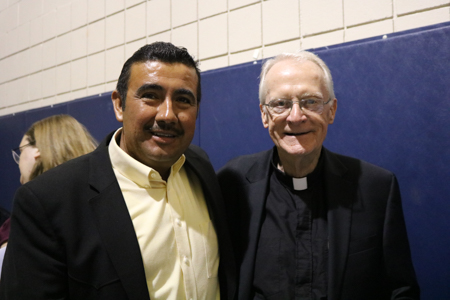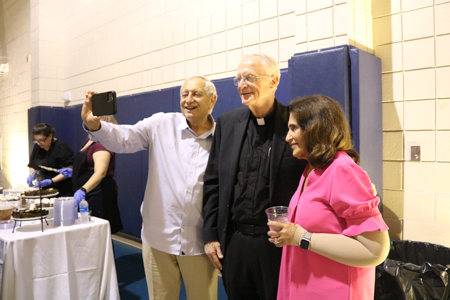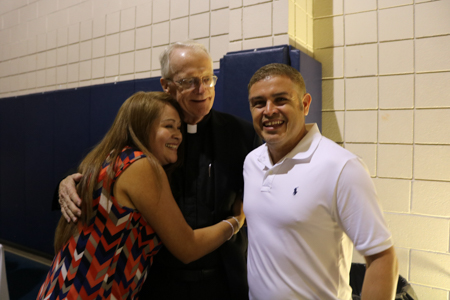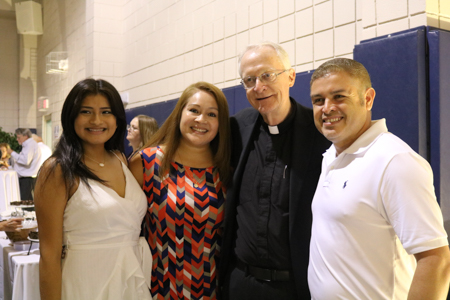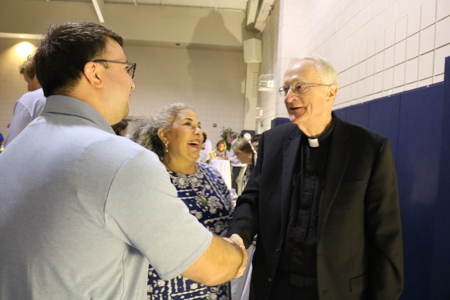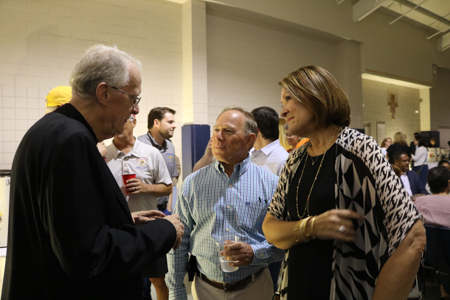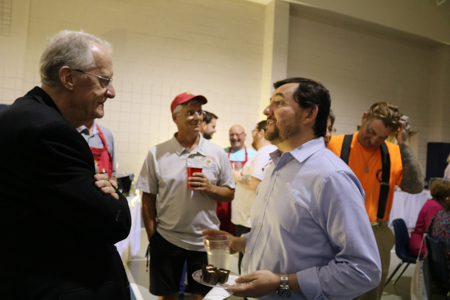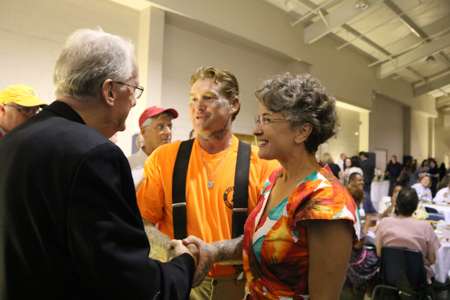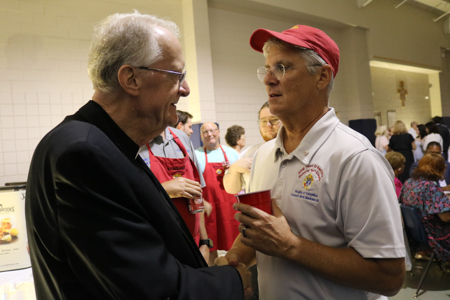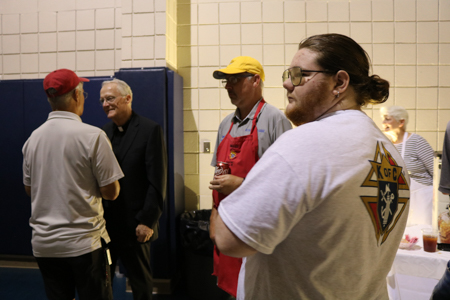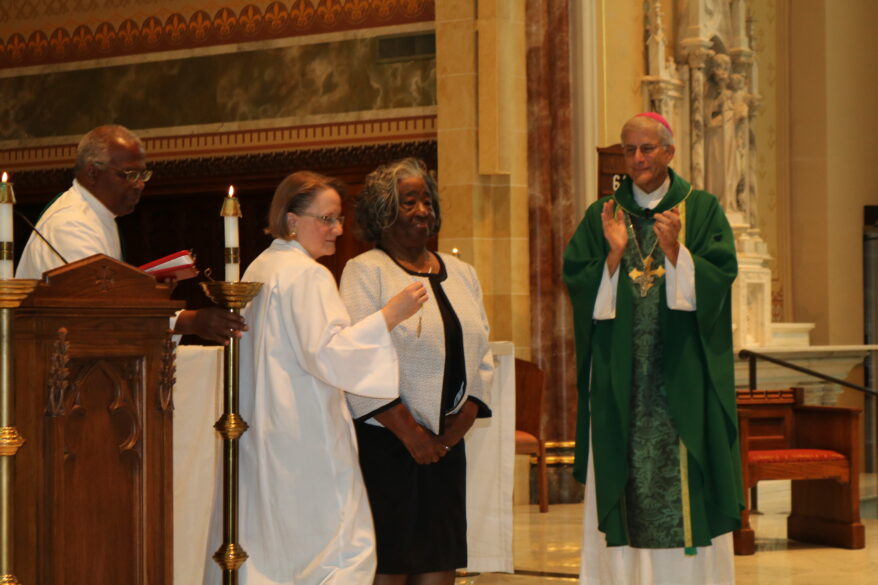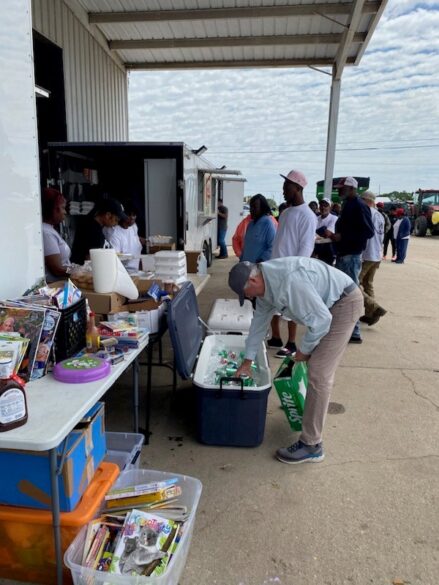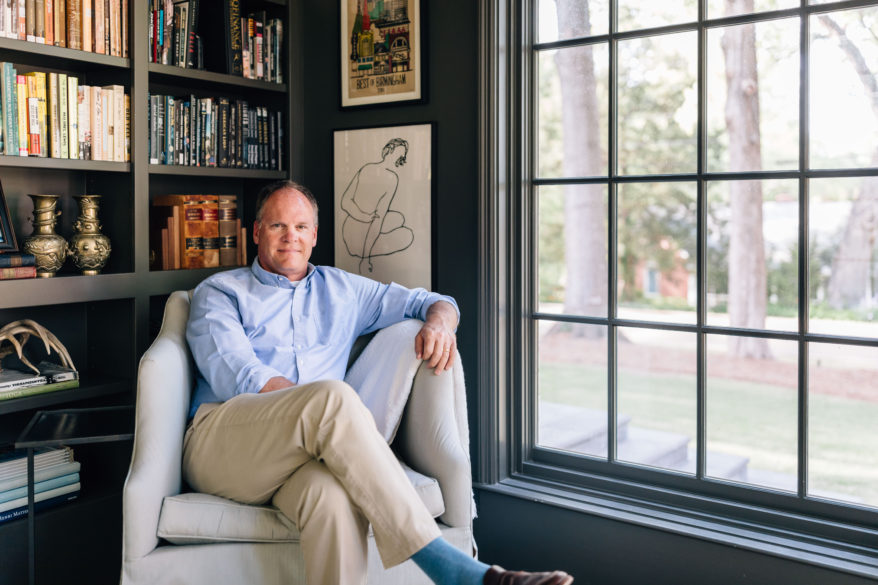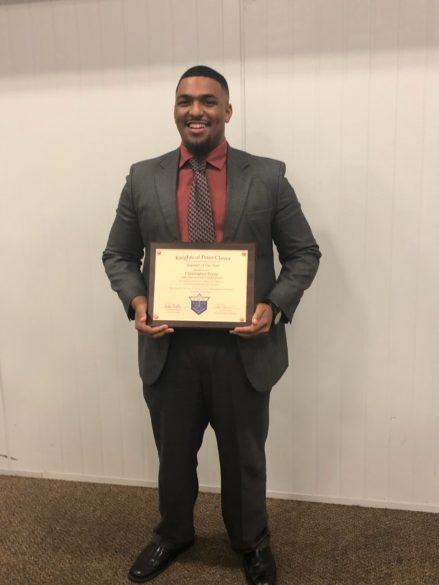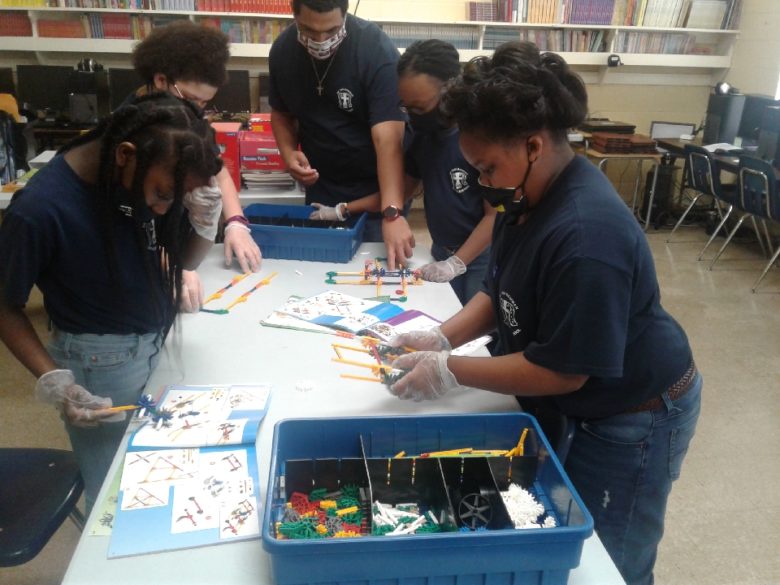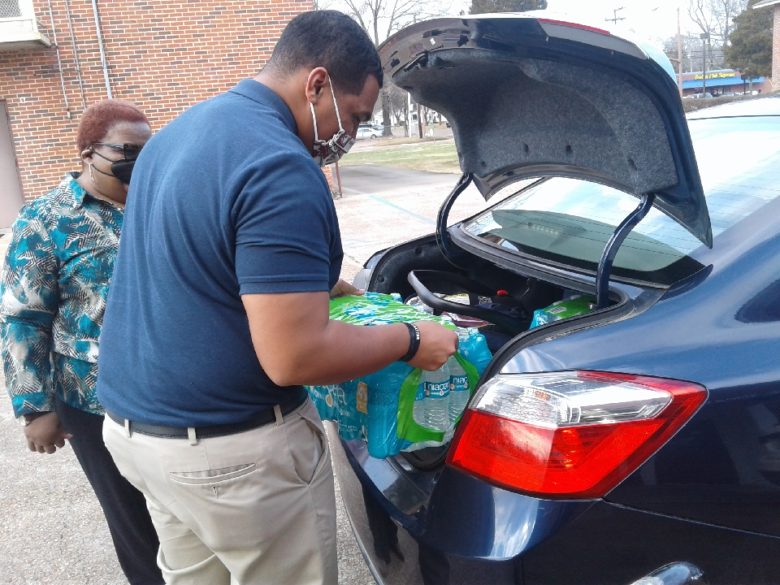Por Joe Lee
MADISON – Ed Donohoe no tuvo que viajar tan lejos como los familiares del padre Frank Cosgrove, que vinieron desde Irlanda para ver al querido sacerdote celebrar la misa y conmemorar el 60.º aniversario de su ordenación, un evento que tuvo lugar el 2 de junio en la iglesia de San Francisco de Asís, en Madison.
Pero 1200 millas era un largo viaje para Donohoe, y no era un viaje barato. ¿Por qué era tan importante para él unirse a la celebración al otro lado del país?
“Porque el padre Frank era como de la familia”, dijo Donohoe, un residente de Colorado que acababa de presentarse para el servicio en la Estación Aérea Naval Meridian en 2008 cuando se conocieron. El padre Frank, entonces párroco de la iglesia de San Patricio, conducía media hora hasta la capilla de la base para celebrar la misa. No tardaron mucho en hacerse amigos.
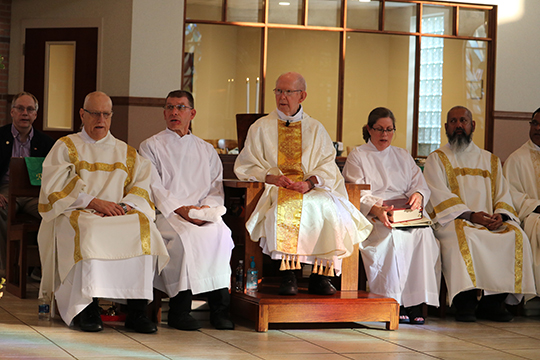
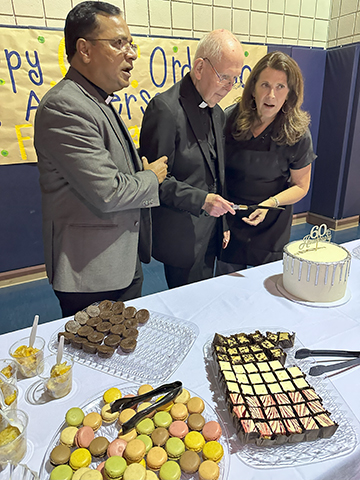
Los miembros de la familia Cosgrove, entre ellos el hermano del padre Frank, Eamonn, su hermana Ruth y sus sobrinos nietos, que visitaban Estados Unidos por primera vez, volaron más de 4000 millas para participar en la misa y disfrutar de la recepción. Más de 50 sacerdotes de todas las diócesis católicas de Jackson y Biloxi acudieron para apoyarlo, y católicos de todo Misisipi (y un número sorprendente de no católicos) abarrotaron el santuario de San Francisco.
Escucharon una homilía basada en sus nuevas memorias, “Sir, Do You Know Where You Are Going?” (Señor, ¿sabe adónde va?), en la que se refirió a menudo a la unidad.
“La celebración significa mucho para mí”, dijo Ralph Eubanks, quien conoce al padre Frank desde que era estudiante en Ole Miss hace dos generaciones, cuando el padre Frank era párroco de la iglesia St. John. “Era un hombre dedicado a la verdad, denunciaba el pecado del racismo y creía en unir a las personas”.
“Casó a mis padres (Ed y Cindy Hannan) hace 48 años”, dijo Anabeth Hannan Duncan, feligresa de St. Francis. “Me bautizó hace 31 años y me casó hace tres años. Pasamos la Nochebuena con él todos los años. Cuando pienso en Dios, veo al padre Frank, imaginándolo unos centímetros más alto”.
“El padre Frank y yo nos conocemos desde 1969, cuando era vicario en St. Peter”, dijo Charlene Bearden. “Me ayudó a conseguir una audiencia con el papa San Juan Pablo II en 1987, cuando estuvo en Nueva Orleans. Lo hizo a través de la National Black Catholic Leadership. Ha influido en la vida de muchas personas de muchas maneras”.
“Lo conozco desde que era adolescente, cuando era nuestro párroco en Ole Miss”, dijo Mary Johnson Coyle. “He sido su amiga durante toda mi vida adulta. Estando con él, uno quería ser mejor católico. Es un hombre encantador y maravilloso que une a todo el mundo”.
“Mi marido John y yo fuimos miembros fundadores de St. Francis”, dijo Mary Kraft. “El padre Frank ha sido maravilloso con nuestra familia. Nuestra hija y otra niña pequeña comenzaron en la CYO en St. Francis bajo su tutela. Nos pidió que fuéramos ministros eucarísticos, pero le dije que nos gustaría ser monaguillos, y fuimos los primeros monaguillos adultos”.
En la recepción celebrada en el centro familiar St. Francis, el padre Frank dedicó tiempo a todos los que querían un abrazo, una selfie o un minuto o dos para darle las gracias. La celebración se prolongó hasta bien entrada la noche. El padre Frank, que ahora tiene más de ochenta años y está afectado por el Parkinson, seguía en pie con una gran sonrisa en el rostro.
Las memorias tuvieron un gran éxito, vendiéndose casi 200 ejemplares en el evento. Están disponibles por 20 dólares hasta agotar existencias en las oficinas parroquiales de San Patricio en Meridian, San Juan en Oxford, San Pablo en Brandon y San Francisco de Asís en Madison.
(Joe Lee es el editor jefe de Dogwood Press y miembro de la parroquia de St. Francis of Assisi, en Madison).

